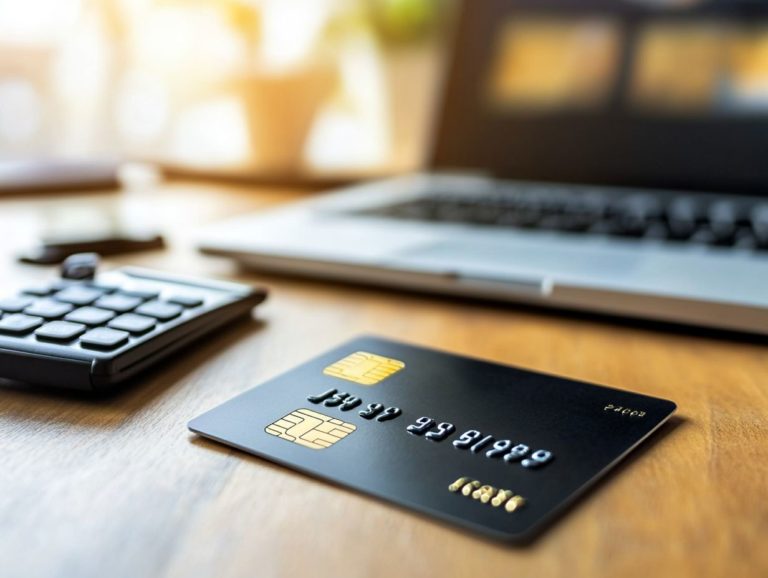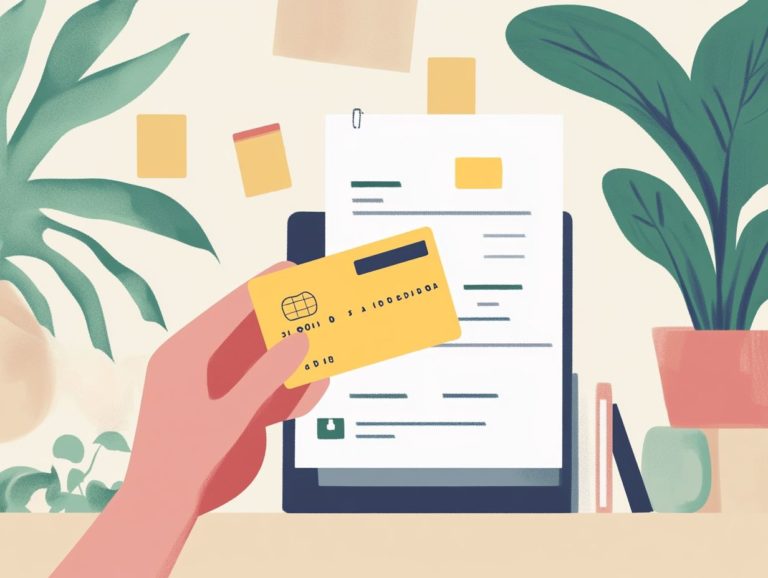Credit Card Fraud: Signs and Prevention Tips
Credit card fraud is an escalating issue in today s digital landscape, impacting countless individuals annually.
It s essential for you to understand the various types of fraud and recognize the warning signs to protect your financial information effectively.
Explore proven strategies to prevent fraud, along with actionable steps to take if you ever find yourself a victim. Staying informed about the latest scams and techniques will help you maintain your peace of mind and secure your financial well-being.
Contents
Key Takeaways:
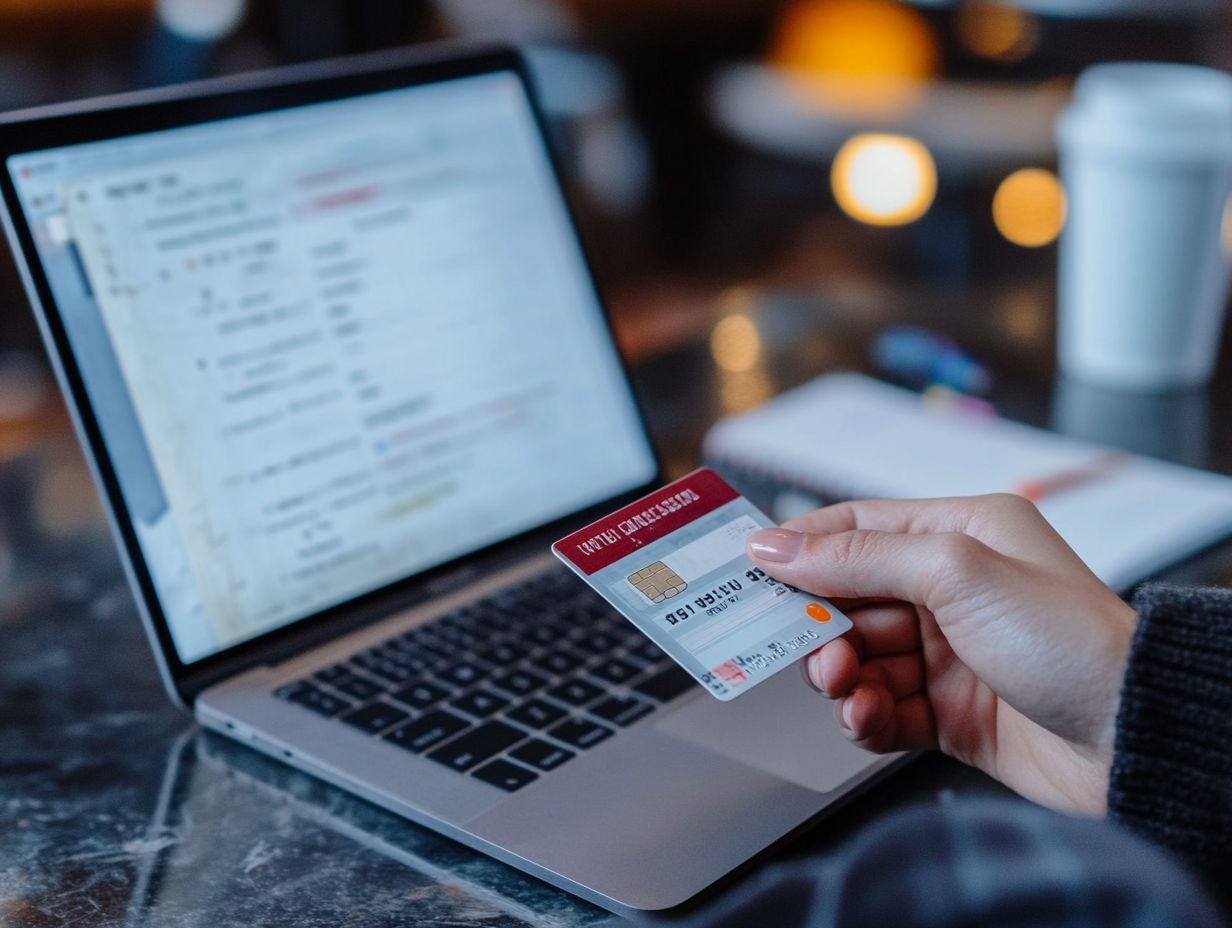
- Credit card fraud is a common form of financial crime that can result in serious consequences for victims.
- Be aware of warning signs like unauthorized charges, unexpected phone calls or emails requesting personal information, and suspicious activity on your account.
- You can protect yourself from credit card fraud by regularly monitoring your accounts, using secure websites, and being cautious with your personal and financial information.
Understanding Credit Card Fraud
Credit card fraud is a significant issue that affects millions of people and businesses in the U.S. each year. It leads to serious financial losses and emotional distress.
About 52 million Americans experience some form of credit card fraud annually. Understanding this crime is essential for your protection.
Fraud can take many forms, such as identity theft, unauthorized credit card use, and data breaches, all of which can occur in both online and offline environments. Understanding these dynamics is key to protecting yourself and your assets.
Definition and Types of Fraud
Credit card fraud encompasses a range of illegal actions designed to unlawfully access your credit card information, leading to unauthorized use and potential financial loss.
This crime can take several forms, including identity theft, where criminals gather your personal information to open new accounts in your name. Another prevalent method involves transactions you didn’t approve, where individuals use stolen card details to make purchases without your consent.
Phishing scams trick you into giving away your credit card details through fake emails or websites. Card skimming is yet another technique, where thieves install devices on ATMs or gas station pumps to capture your card information.
According to the Federal Trade Commission, reported losses from credit card fraud exceeded $5.6 billion in 2021 alone, underscoring the urgent need for you to remain vigilant.
Signs of Credit Card Fraud
Recognizing the signs of credit card fraud is essential for minimizing potential damage and ensuring timely action. Common indicators include unexplained charges on your credit card statements, alerts from service providers, and notifications regarding data breaches that may compromise your personal information. For more insights, consider exploring understanding credit card fraud protection.
These red flags are your first line of defense. They help you respond quickly and protect your finances.
Red Flags to Look Out For
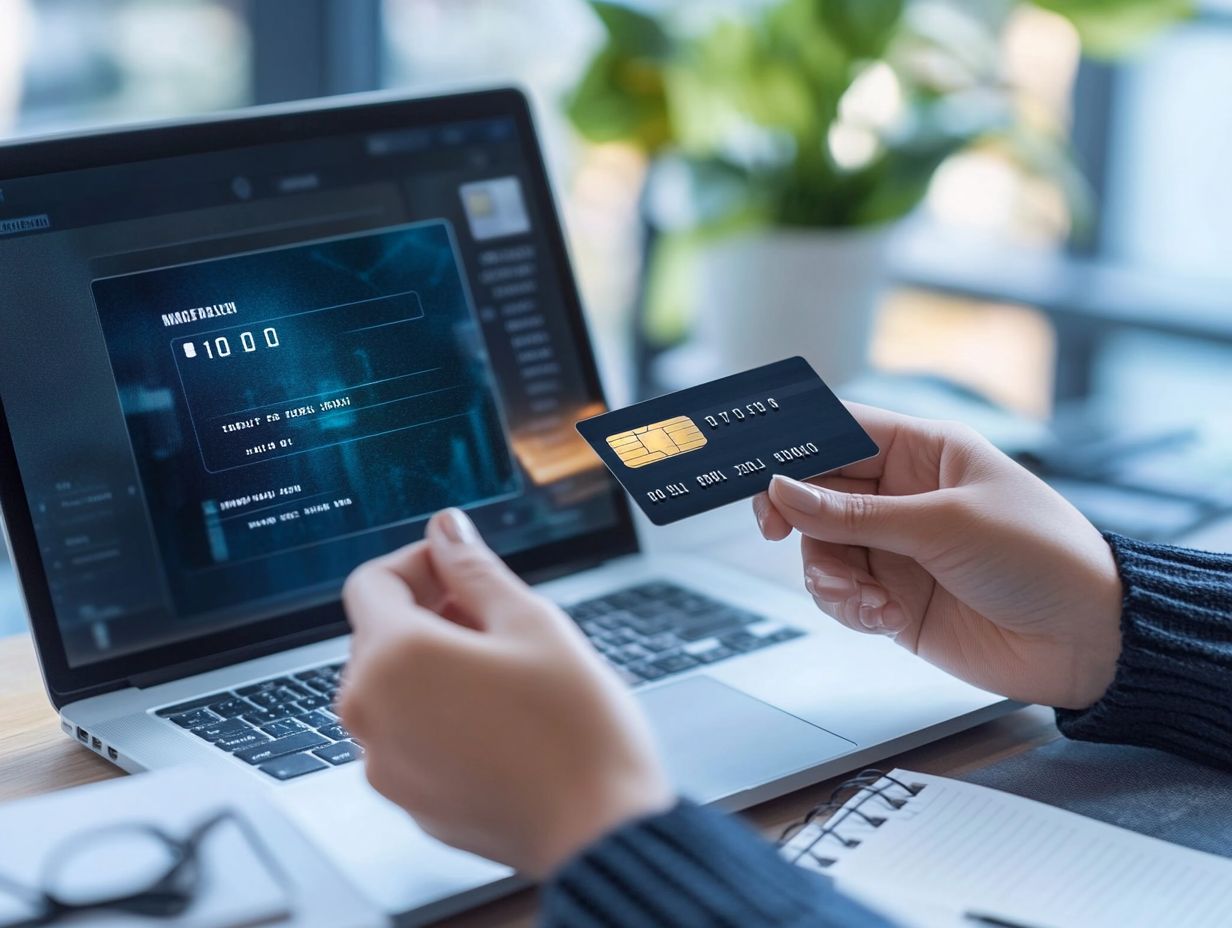
When you monitor your credit card activity, there are several red flags that may signal potential fraud. Keep an eye out for unexpected email alerts about unauthorized transactions or sudden changes in your credit card information.
You should always be vigilant for unfamiliar charges that pop up on your statements, as these may indicate unauthorized use of your account. It s also crucial to pay attention to any strange behaviors, like merchants you don t recall visiting or transactions originating from distant locations.
If your account details suddenly change without your consent such as a new billing address or contact number consider that a strong indicator of possible fraud. By being proactive and regularly reviewing your account statements, you can effectively safeguard your finances.
Preventing Credit Card Fraud
Implementing effective security measures is crucial for preventing credit card fraud and safeguarding your personal information. By utilizing strong passwords and regularly updating them, you can significantly lower your risk.
Ensure that you only transact on secure websites to protect yourself further. Embrace mobile wallets like Apple Pay and Android Pay for enhanced security features, offering an extra layer of defense against unauthorized use of your credit card information.
Tips for Protecting Your Information
To effectively safeguard your credit card information, consider implementing multiple layers of security measures. Set payment limits and activate fraud alerts on your accounts to enhance your protection.
Make it a habit to routinely monitor your financial accounts for unusual transactions. Many financial institutions now offer advanced notification systems that can alert you to potentially fraudulent activities in real-time.
Utilizing these alerts enables you to take swift action in case of misuse and encourages regular account checks. Setting daily or monthly payment limits acts as an additional safeguard, minimizing the risk of large unauthorized charges.
When you proactively manage your banking settings and stay informed, you significantly strengthen your defenses against potential threats.
What to Do if You are a Victim
If you become a victim of credit card fraud, take immediate action to reduce any damage and safeguard your finances. Start by meticulously reviewing your account statements for unauthorized transactions. Report any fraudulent activity to your card issuer without delay.
Understanding your rights under protections such as the Fair Credit Billing Act enables you to deal with this issue effectively.
Steps to Take to Resolve Fraudulent Charges
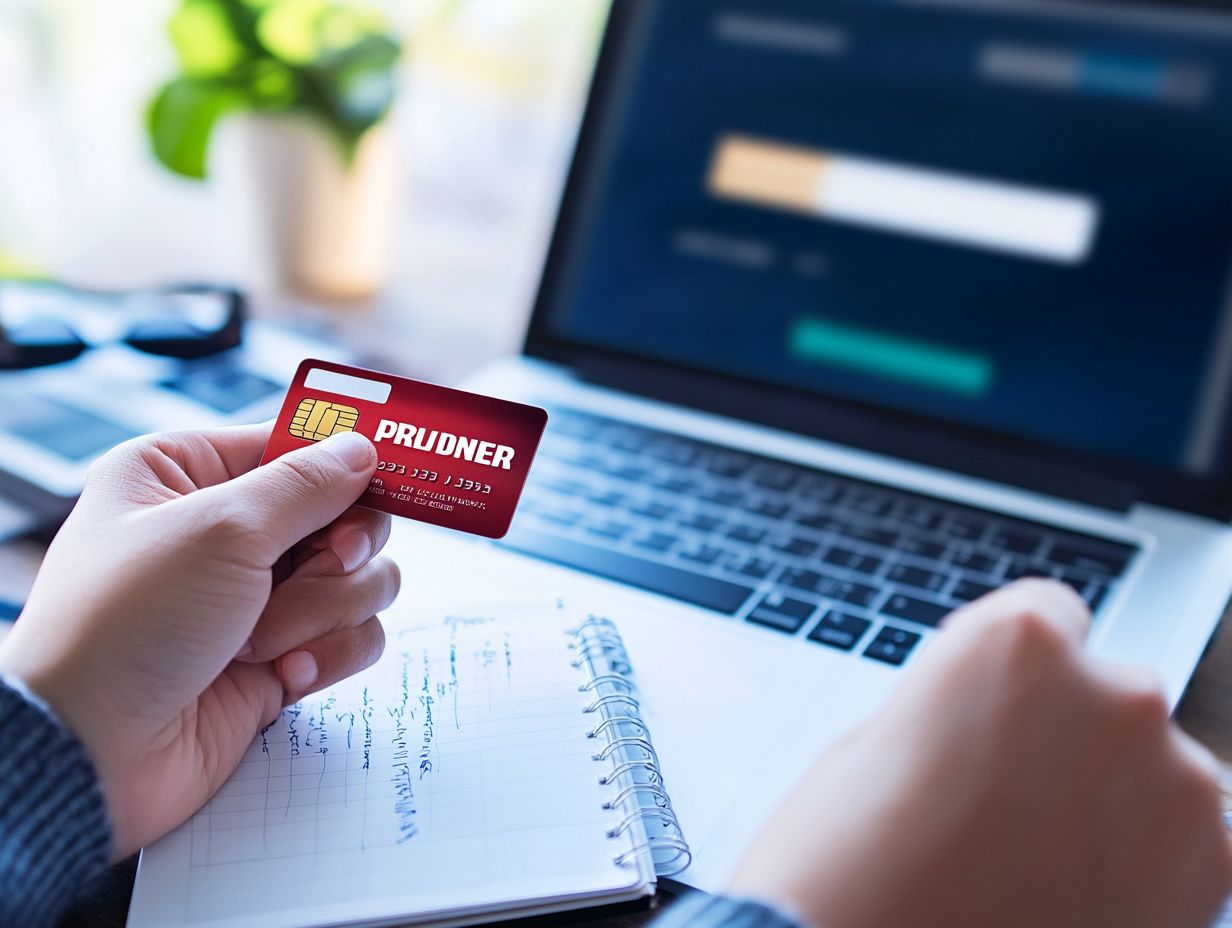
Resolving fraudulent charges on your credit card requires several crucial steps. The first thing you should do is notify your credit card issuer about the unauthorized use and place fraud alerts on your account.
After you contact your issuer, they will typically guide you through the process of disputing the fraudulent charges, which may involve submitting a formal complaint or providing relevant documentation.
Regularly checking your credit report is wise to ensure no new accounts have been opened in your name without your knowledge, helping safeguard against potential identity theft.
Staying Informed and Vigilant
Stay informed and vigilant to protect yourself against credit card fraud in today’s digital landscape. With numerous online scams, such as phishing schemes and other deceptive tactics, being alert is vital.
Keeping Up with Current Scams and Techniques
To effectively protect yourself from credit card fraud, staying informed about the latest scams and tactics used by fraudsters is crucial. Phishing schemes often aim to steal your personal information.
These scams may appear as deceptive emails or text messages from trusted sources, enticing you to click on malicious links or share sensitive data. Some scams pose as legitimate websites or services, where unsuspecting users might inadvertently share their credit card details.
To protect yourself from these threats, it’s essential to:
- Always verify the sender’s email address.
- Look for signs of poor grammar or urgent requests.
- Refrain from clicking on unfamiliar links.
Employing two-factor authentication, which requires a second form of verification, like a text message code, along with regularly monitoring your financial statements, can significantly bolster your security. This enables you to swiftly detect any unauthorized charges or suspicious activity.
Frequently Asked Questions
What is credit card fraud?
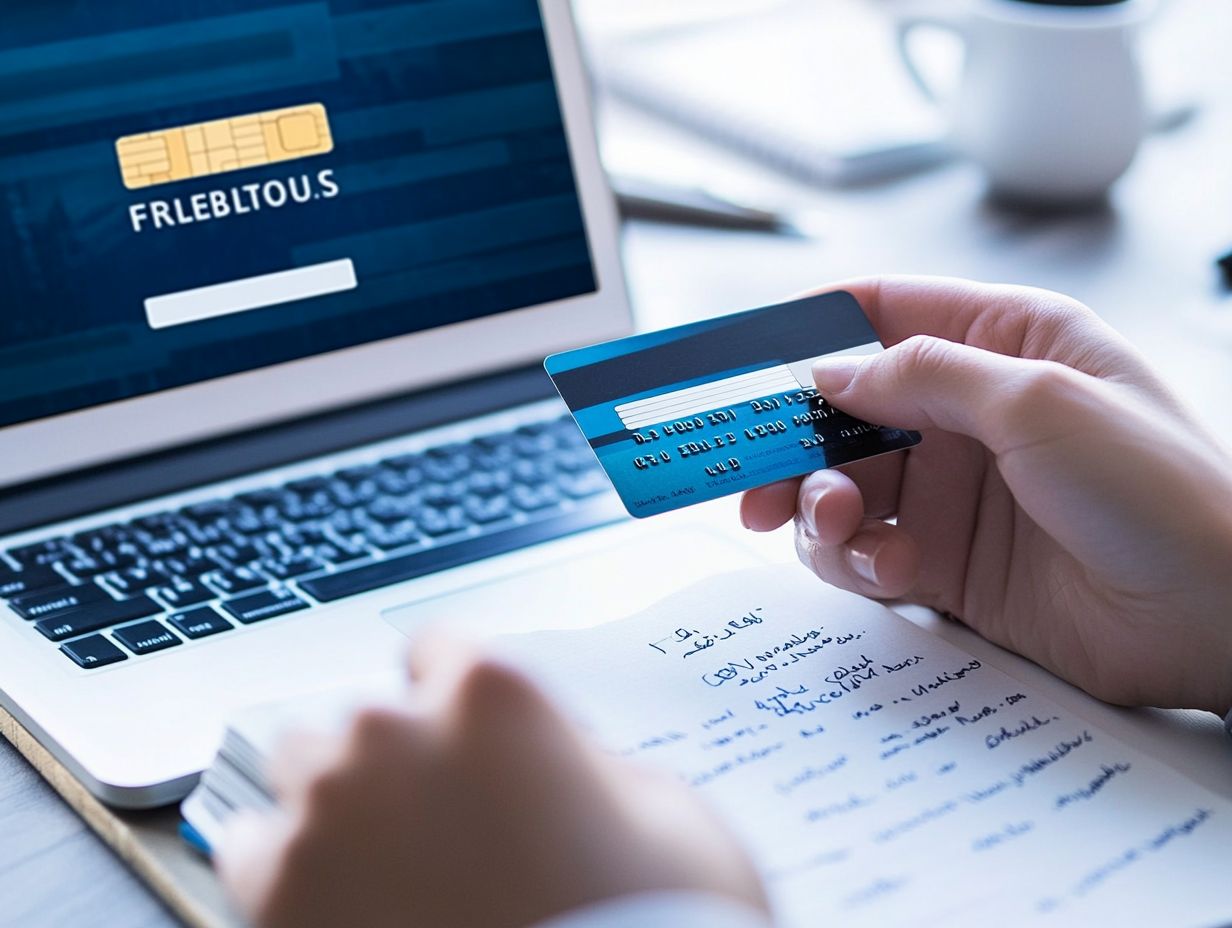
Credit card fraud is a type of identity theft. It occurs when someone uses your credit card information without your permission to buy things or withdraw money.
What are the signs of credit card fraud?
Signs of credit card fraud include unfamiliar charges on your statement. Other signs are receiving bills or collection notices for accounts you don’t recognize and not getting your credit card statements or mail on time.
How can I prevent credit card fraud?
To prevent credit card fraud, keep your credit card in a secure place. Monitor your statements regularly and never share your card information with anyone.
Be cautious when providing your credit card information online. Ensure the website is secure before entering your details.
What should I do if I suspect credit card fraud?
If you suspect credit card fraud, immediately contact your credit card company. Report any unauthorized charges or activity.
Don t wait! Request a new credit card right away to stay safe.
Are there any red flags to watch out for when using my credit card?
Yes, watch out for suspicious or unsecured websites asking for your card information. Also, be cautious if merchants do not verify your identity properly.
Be alert if cashiers ask for extra personal information when making a purchase.
What should I do if my credit card information is compromised?
If your card information is compromised, contact your credit card company immediately. Report the unauthorized charges or activity to them.
Also, place a fraud alert on your credit report. Continuously monitor your credit for any further suspicious activity.
Stay vigilant and take proactive measures against credit card fraud. Being aware can help protect your finances!




